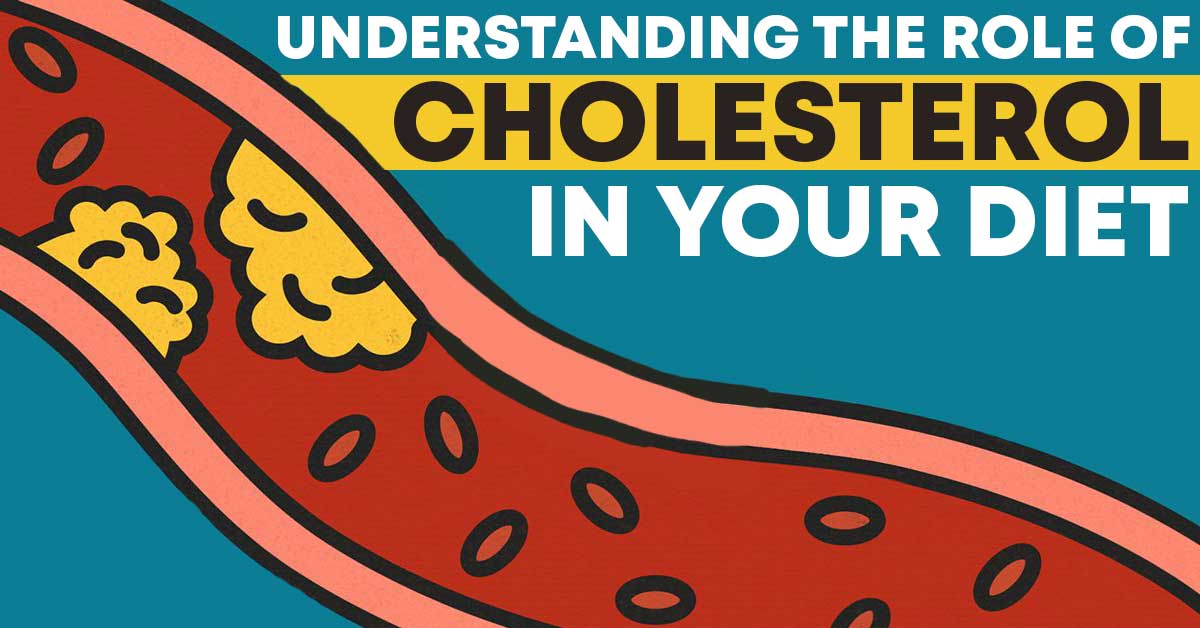Cholesterol is often viewed negatively since too much cholesterol poses health concerns. However, cholesterol plays a necessary role in making your body function as it should. Fortunately, your body makes all of the cholesterol you need. With a healthy diet and exercise, you can regulate your cholesterol to maintain a healthy amount.
Almost 2 in 5 adults have high cholesterol according to the CDC. Each year, September is Cholesterol Education Month to raise awareness for the role of cholesterol in our healthy lives.
The Essential Role of Cholesterol in Your Body
Your cholesterol is a waxy substance found in your blood, which is necessary to build healthy cells. Too much cholesterol though raises your risk for heart disease.
Cholesterol plays a crucial role in helping your body make cell membranes, hormones, and vitamin D.
Good vs Bad Cholesterol
In a simple sense, there are two types of cholesterol. LDL (low-density lipoprotein) contributes to plaque buildup in your arteries and HDL (high-density lipoprotein) fights the plaque buildup. HDL works to move cholesterol to your liver where it is then removed from the bloodstream.
Because it causes plaque buildup, LDL cholesterol is commonly referred to as “bad cholesterol” while HDL is “good cholesterol.”
What do the Cholesterol Numbers Mean?
Your cholesterol numbers simply indicate how much cholesterol is circulating in your blood. You want your HDL to be above 60. The LDL number should be below 100. In total, the numbers should add up to less than 200.
Is High Cholesterol food the problem?
Eggs are a healthy source of protein, but they are also high in cholesterol. However, the Mayo Clinic reports that this cholesterol in eggs is different from that of the cholesterol found in trans fats and saturated fats. Because of this, egg’s impacts on our overall cholesterol levels are thought to be lower.
Only about 20% of the body’s cholesterol comes from the food we eat. This relatively small percentage of food is the reason why foods like eggs that carry health benefits in other regards should not be avoided strictly because of their cholesterol content. Eating eggs will probably not elevate your cholesterol significantly.
The concern when pertaining to food then comes from “junk food” or other foods high in saturated fat. Food that lacks any real health benefit while simultaneously raising cholesterol is a serious concern (for more reasons than simply cholesterol). Researchers believe that often this poor dieting can be an issue caused by someone’s environment and lifestyle, which can result in high cholesterol impacting multiple members of one family.
Why High Cholesterol is a Health Concern
When you have high cholesterol your body can form fatty deposits in your blood vessels made up of the waxy substance synonymous with cholesterol. This fatty deposit can make it difficult for blood to flow or create clots that can lead to heart attack or stroke.
The Mayo Clinic states there are no symptoms of high cholesterol. A blood test is the only way you can discover if your cholesterol is high. If you attend annual physicals your provider may order blood tests annually to monitor these numbers.
The majority of the time, high cholesterol is the result of lifestyle choices.
How is High Cholesterol Treated?
If you discover you have high cholesterol, your provider will work with you to manage your numbers. Some patients can manage their cholesterol by making lifestyle changes. Improving your eating and exercise habits can help some patients.
Others may have to use statins, a category of medication, that can aid in reducing cholesterol levels.


